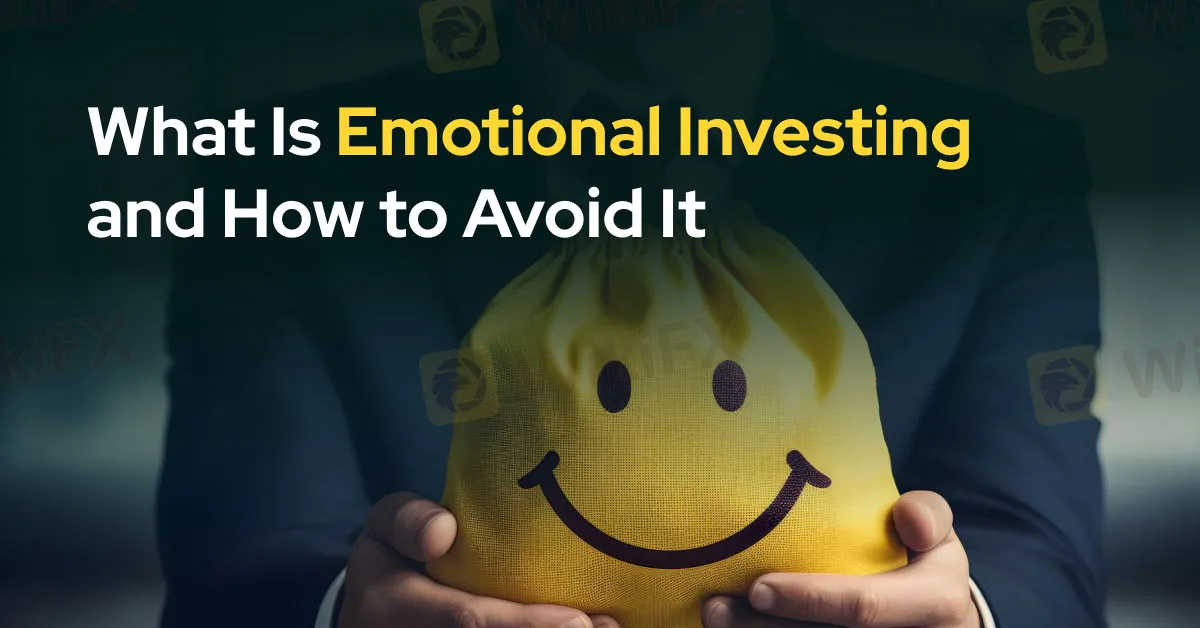简体中文
繁體中文
English
Pусский
日本語
ภาษาไทย
Tiếng Việt
Bahasa Indonesia
Español
हिन्दी
Filippiiniläinen
Français
Deutsch
Português
Türkçe
한국어
العربية
What Is Emotional Investing and How to Avoid It
Abstract:Emotional investing occurs when investors make decisions based on their emotions rather than on solid financial principles and analysis. This type of investing often involves impulsive actions driven by fear, greed, hope, or other emotions, leading to irrational choices and heightened risk.

Understanding Emotional Investing
Emotional investing occurs when investors make decisions based on their emotions rather than on solid financial principles and analysis. This type of investing often involves impulsive actions driven by fear, greed, hope, or other emotions, leading to irrational choices and heightened risk.
Emotional investors typically exhibit the following behaviors:
Chasing Trends: Buying assets that have recently performed well due to fear of missing out (FOMO).
Panic Selling: Selling investments during market downturns out of fear of further losses.
Overconfidence: Believing too strongly in their ability to predict market movements, leading to excessive risk-taking.
Regret Avoidance: Holding onto losing investments to avoid admitting a mistake.
The Risks of Emotional Investing
Investing based on emotions can lead to significant financial losses. When emotions take over, investors are more likely to:
Buy High and Sell Low: Driven by fear and greed, emotional investors often enter and exit positions at the worst possible times.
Ignore Fundamentals: Making decisions without considering the underlying value or financial health of investments.
Increase Portfolio Volatility: Frequent buying and selling based on emotional reactions can lead to higher transaction costs and increased portfolio volatility.
How to Avoid Emotional Investing
Create a Plan: Establish a clear investment strategy with defined goals, risk tolerance, and time horizon. A solid plan helps you stay focused during market fluctuations.
Stick to Fundamentals: Base investment decisions on thorough research and analysis of financial statements, market conditions, and other relevant factors.
Set Rules: Implement rules for buying and selling investments. For example, use stop-loss orders to limit potential losses and set profit-taking points to lock in gains.
Diversify: Spread your investments across different asset classes, sectors, and geographic regions to reduce risk and avoid the temptation to chase high returns in a single area.
Maintain Discipline: Avoid making impulsive decisions. Take a step back and assess whether your choices align with your investment plan.
Stay Informed: Keep up with market trends and news, but dont let short-term noise dictate your decisions. Focus on long-term objectives.
Practice Patience: Successful investing often requires patience. Avoid reacting to every market movement and give your investments time to grow.
Seek Professional Advice: Consult with a financial advisor to gain objective insights and help you stay on track with your investment goals.
Conclusion
Emotional investing can lead to poor financial outcomes due to impulsive and irrational decisions. By recognizing the pitfalls of emotional investing and implementing strategies to stay disciplined, investors can make more informed choices, reduce risk, and increase the likelihood of achieving their financial goals. Remember, a well-thought-out investment plan grounded in fundamentals is your best defense against the temptations of emotional investing.

Disclaimer:
The views in this article only represent the author's personal views, and do not constitute investment advice on this platform. This platform does not guarantee the accuracy, completeness and timeliness of the information in the article, and will not be liable for any loss caused by the use of or reliance on the information in the article.
Read more

Beware of Deepfake 'Experts' and Fake Apps: Protecting Yourself from Trading Scams
In recent years, the rise of deepfake technology and sophisticated online exploitation tactics have led to a dangerous surge in share-trading frauds. Cybercriminals have evolved their methods to deceive even the most cautious investors, making it increasingly challenging for individuals to discern genuine opportunities from scams.

What Happens if A Broker Goes Bust?
For traders, understanding what happens when a broker collapses is crucial. It serves as a reminder that choosing the right broker involves more than just attractive spreads and swift execution; it’s about safeguarding funds in case things go wrong.

Trading is Not Gambling—Unless You Make It So
In the world of online trading, a common misconception persists: trading is often seen as no different from gambling. This belief is particularly prevalent among newcomers, who may view the financial markets as a fast-paced game where winning is just a matter of luck. But trading, when done correctly, is far from mere chance!

What Should Forex Traders Expect from U.S. Election Volatility?
Currency traders brace for record volatility in forex markets as U.S. election results roll in. High volatility is expected in the euro and Mexican peso as Harris and Trump remain neck-and-neck
WikiFX Broker
Latest News
JUST Finance and UBX Launch Multi-Currency Stablecoin Exchange
XM Revamps Website with Sleek Design and App Focus
TradingView & Mexico’s Uni. Partnership, to Enhance Financial Education
Something You Need to Know About SogoTrade
Global Shift in Cryptocurrency Taxation: Italy and Denmark Chart New Paths
Webull Introduces 24/5 Overnight Trading to Extend U.S. Market Access
eToro Launches Global-Edge Smart Portfolio: A Balanced Approach to Growth and Stability
Darwinex advises traders to update MT4 & 5
Revolut X Expands Crypto Exchange Across Europe, Targeting Pro Traders
Crypto Scammer Pleads Guilty in $73 Million “Pig Butchering” Fraud
Currency Calculator


